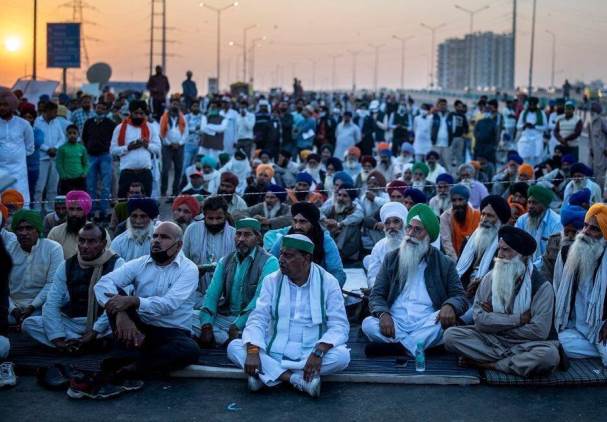Shiv Sena (Uddhav Thackeray faction) MP Sanjay Raut on Wednesday said that a constitutional amendment is required for Maratha reservation and asked if the Modi government would bring any proposal related to this in the winter session.
Sanjay Raut said, “For Maratha reservation, BJP leaders will have to take the initiative because PM Modi is the Prime Minister. Why do the BJP leader and Maharashtra CM not say anything on this to PM Modi? Will the Modi government bring any proposal related to this in the winter session in December? “
“If you want to give reservation then OBC and other communities should not face any setback. So the government will have to bring Constitutional amendments and for that, you will have to bring a proposal in the Parliament,” said Sanjay Raut.
Sanjay Raut alleged that the Maharashtra government did not want to take a decision on the Maratha Reservation before December 31 as it is the deadline for the Assembly Speaker to decide on the disqualification of 16 MLAs.
Raut also claimed that 16 MLAs who were part of the split in Shiv Sena almost a year back are going to be “disqualified”.
In June 2022, a group of Shiv Sena MLAs led by Eknath Shinde rebelled against Uddhav Thackeray – saying that the latter’s decision to align with the Congress and the Nationalist Congress Party went against the party’s Hindutva ideology. Shinde, then cabinet minister in the Maha Vikas Aghadi (MVA) government, led the revolt which vertically split the Shiv Sena.
Sanjay Raut said, “The Speaker of the Assembly has been given a deadline of December 31 and asked to take a decision. After December 31, along with the Chief Minister, 16 MLAs will become ineligible. That’s why Jarange Patil has said 24th December and the government has said 2nd January. The government wants to put this responsibility on the new government after the assembly election”
“Nothing came out of the all-party meeting. The Maratha community from the whole of Maharashtra is supporting Manoj Jarange Patil,” he added.
Earlier, Chief Minister Eknath Shinde met with the Jarange Patil and assured him that a viable solution for the reservation was being worked on.
The Maratha activist agreed to call off his protest and gave the state two months’ time to come good on its promise of reservation for the Maratha community.
After the meeting with Jarange Patil, CM Eknath Shinde said, “It might be the first incident in history for a justice (retired) to visit a fasting protest site to resolve the situation, Manoj Jarange Patil has given a two-month deadline of January 2. The government will seriously undertake steps to provide a judicially sustainable and legally viable solution that can pass scrutiny by courts for the Maratha community,”
“Until now, 13,514 records have been found, which is significant. The Justice Shinde Committee has worked day and night. The committee has asked for an extension, which I have conveyed to Manoj Jarange-Patil. Deputy Chief Minister Devendra Fadnavis and Deputy Chief Minister Ajit Pawar had decided that this issue should be resolved through discussions and dialogue.” he added.
Justice Maroti Gaikwad, Justice Sunil Shukre, Advocate Himanshu Sachdev, and others were part of the delegation that met with Manoj Jarange Patil.
MLAs, Sandipan Bhumare, Dhananjay Munde, Atul Save, Uday Samant, Bachchu Kadu, and Narayan Rane also spoke with Manoj Jarange Patil to resolve the fasting protest.
“We are also working on the curative petition in the Supreme Court. The committee of judges established by the state government yesterday is guiding the government and the commission based on the observations recorded by the Supreme Court when it cancelled the Maratha reservation earlier. The Backward Classes Commission will undertake the task of assessing how the Maratha community is backward. The government will work very seriously to provide judiciary-sustainable reservations to the Maratha community,” CM Shinde further added.
Meanwhile, the state government on Tuesday accepted the first report presented by the Shinde committee and issued a Government Resolution (GR), to decide the procedure for granting Kunbi caste certificates to the Maratha in the Marathwada region.
The Justice Shinde committee reviewed the district-wise records in connection to the Maratha reservation. The committee directed the concerned 8 District Collectors to prepare a single sample for all the districts of Marathwada and inspect the records to submit a report to the government regarding the checked records.
The process of issuance of Kunbi certificates has begun. The Kunbi community is eligible for reservation in the OBC category. (ANI)
For more details visit us: https://lokmarg.com/

